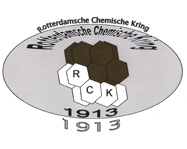| Spreker: | dr. ir. M.A. Kabel |
| Datum: | Maandag 12 oktober 2015 |
| Locatie: | Hogeschool van Rotterdam, G.J. de Jonghweg 4-6, 3015 GG Rotterdam |
| Aanvang: | 19:30 uur |
Korte inhoud van de lezing:
Dr. Mirjam Kabels’ research is situated within the field of ‘Biomass valorisation’. Biomass is considered to originate from plant or from aquatic residues, excluding bacterial or fungal biomass. In current perspectives, biomass valorisation is an important aspect in the search for alternatives for the depletions of mineral oil-based fuels and chemicals; a key aspect for a Biobased Economy. Research in this field focusses at sustainable refining of available biomasses into their components for use in food, feed, biofuels or chemicals. The sources of such biomass are non-food agricultural side streams, like cereal straw, forest residues and vegetative grasses.
Refining of lignocellulosic biomass is currently hindered by the presence of recalcitrant structures, which are preventing microbial enzymes from degrading the carbohydrate polymers in lignocellulose. These recalcitrant structures even remain after hydrothermal pretreatments, although, less when pretreatments are assisted by added alkali or acid. Nevertheless, milder conditions are preferred in view of a more sustainable and environmental friendly process. The recalcitrant structures in biomass can be pided into four types: A) highly substituted hemicellulose architectures shielding the access to cellulose and being resistant to breakdown to its constituent monosaccharides, B) lignin networks embedding cellulose and hemicellulose and thus restricting enzyme access, C) covalent hemicellulose-lignin junctions tying the two polymers together and hampering their removal, and D) highly crystalline cellulose microfibrils.
In the presentation the sense and nonsense and current insights of the following strategies will be discussed:
- Characterisation of lignocellulosic biomasses before and after pretreatment.
- Optimising enzymatic conversion of (hemi-) cellulose.
- Exploring enzyme-driven degradation of lignin-carbohydrate complexes.
Curriculum Vitae: in vogelvlucht Mirjam Kabel studeerde van 1992 – 1998 aan de Wageningen Universiteit, afd. Levensmiddelentechnologie.
Mirjam Kabel studeerde van 1992 – 1998 aan de Wageningen Universiteit, afd. Levensmiddelentechnologie.
Hier promoveerde zij ook in 2002 op het Laboratorium voor Levensmiddelenchemie, waarna zij er een postdoc deed tot 2006.
Van 2006 – 2011 was zij senior scientist Enzyme Technology bij Koninklijke Nedalco, en tot 2012 idem bij DSM/Kon. Nedalco.
Van 2011 (part-time) tot heden (full-time) is zij ass. professor aan de Wageningen Universiteit, werkzaam op het levensmiddelenchemielaboratorium op het gebied van biomassakoolwaterstoffenbiochemie.
Introducés zijn van harte welkom; wel graag even van tevoren aanmelden.

